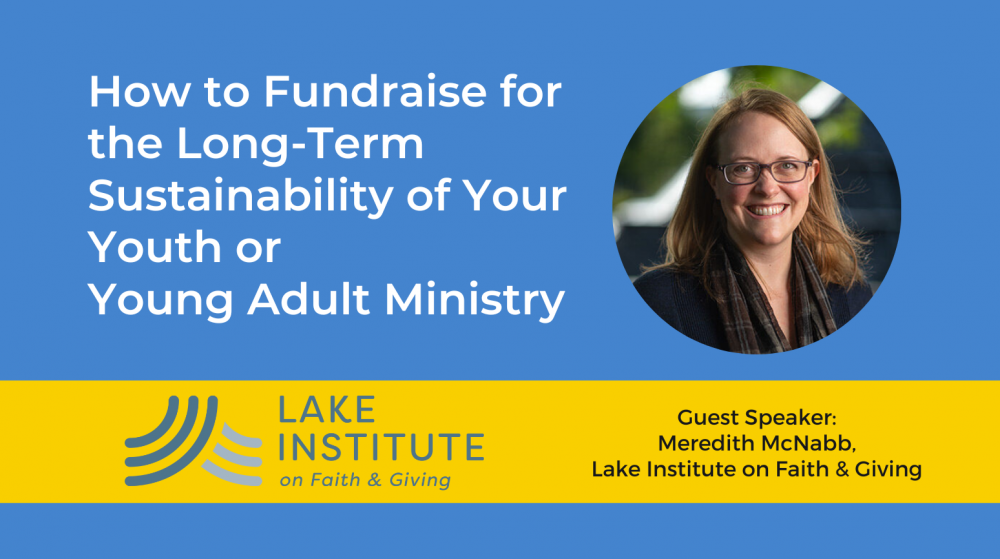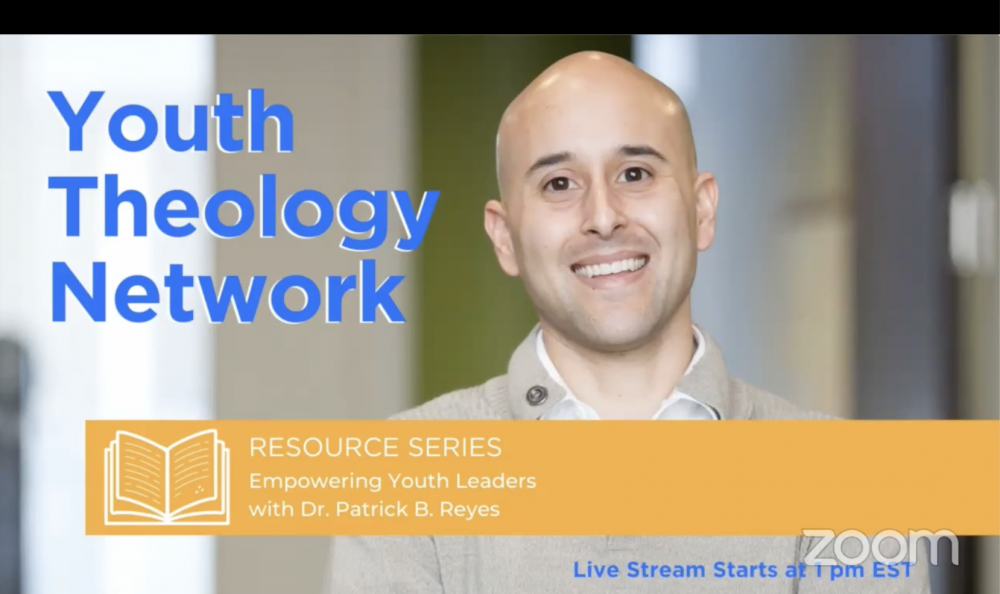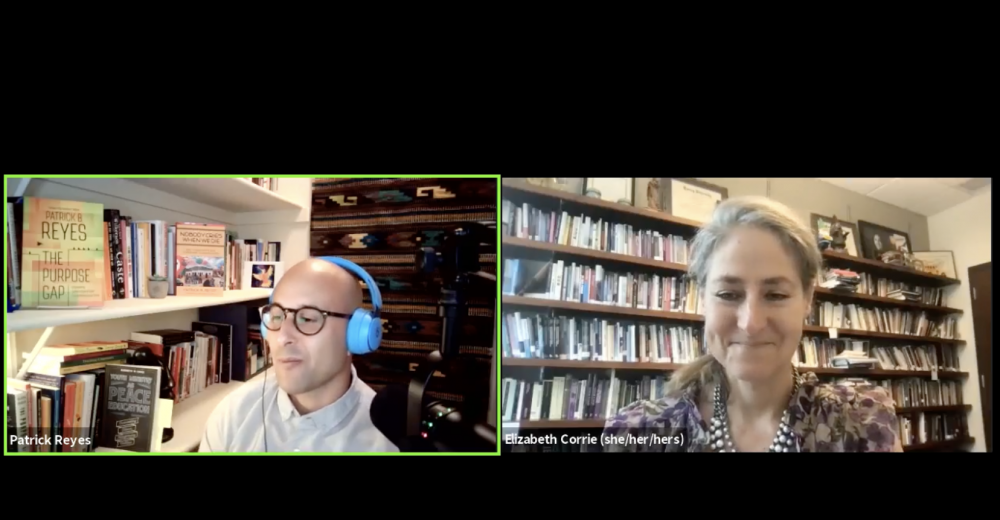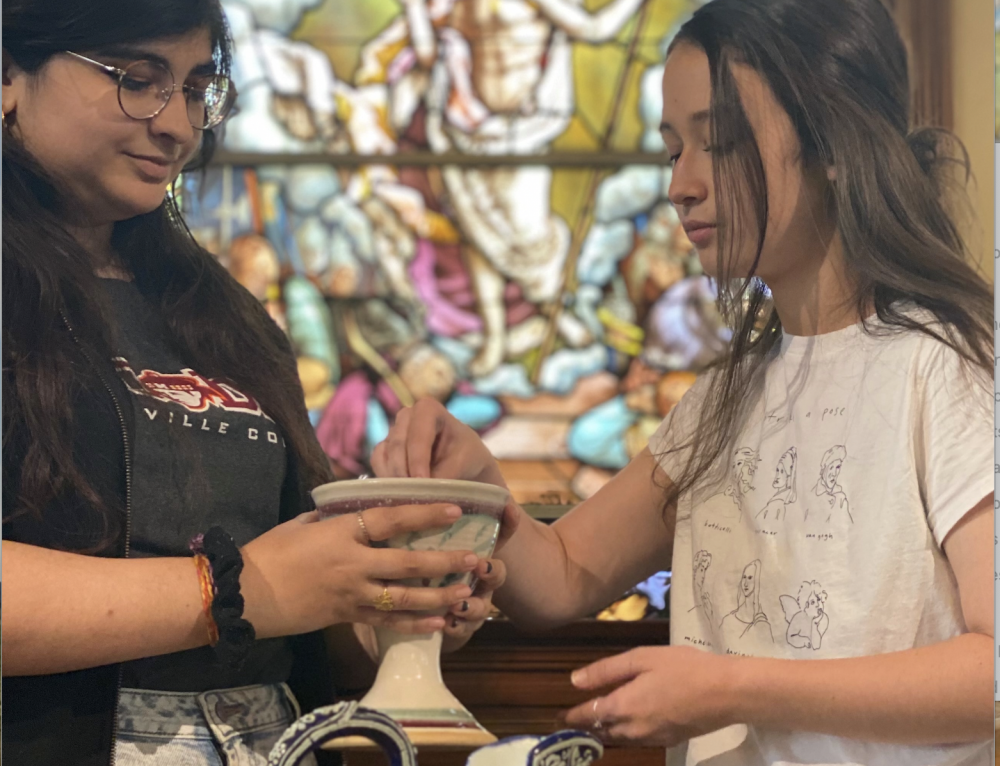Our 2022 theme was "Awaken What's Possible," which has been built on hope for a better future.
By investing in students who truly desire to impact the world around them and live out their purpose, passion and calling, we believe that possible will become inevitable.
We even asked our program leaders what "Awaken What's Possible" means to them, and this is what a few of them had to say:
"I have seen in our students the capacity for understanding, reconciliation and faith lived out even in difficult circumstances."
"I’ve seen students in our program not only dream about making a difference but actually do it. So, I’m hopeful that we can continue to not only educate young people but also inspire them to more!"
"I have a revitalized hope for community as I have see students from different backgrounds sharing with one another their story and creating meaningful bonds with one another."
"I have seen students be resilient within all the challenges they have encountered this year. I have seen students listen to the voice of love and come alive to the gifts inside of them."
"By having time and space with peers to worship, explore questions of faith and discover intersections between science and religion, high school students and their college mentors feel more confident and empowered to speak about their convictions and to stand up against injustices. They come away with friendships and a stronger sense of their own strengths and sense of calling. Program leaders are consistently moved and inspired by the creativity, leadership capacities, and passion of these young people."
"In the midst of uncertainty, frustrations and isolation, students are hungry for authentic connections and willing to get creative. I find great hope in their resilience."
"Students have shown resiliency and hope for the future of the church and students involvement within it. Students greatly desired to be 'together,' which, thank God, we were able to do in the summer of 2021. Our students have been able to bounce back from the pandemic much more quickly than some adults. They have been helpful to their parents when things were looking more difficult during the year. They also are simply tired of talking and hearing about the pandemic and wish to move on with life and their future!"
"I have seen the hope of true loving connection through our students in the difficult year of 2021."
"The pandemic has been quite overwhelming for students. They have felt overwhelmed by fear and anxiety. Yet, they have persevered! COVID has forced them to think outside of the box and to pivot on a dime."
"The hope that I have seen is that we can create community through creative means that are both vital and lively!"
"I've seen them adapt to an ever-changing program and circumstances. I've seen them grow resilient and understanding. I've seen them delve further into caring for the earth from a standpoint of caring for creation."
"There were quicker connections and deeper relationships formed through our students in 2021. The Spirit awakened the possibility of new hope to changes in our program."
"I've seen the desire in them to continue the growth energy in serving as leaders and in forming the next generation, creating an inclusive community of peers."
"We now have about 40 alumni. Our campus is small so I see many of them very frequently. Even in the midst of the pandemic, I see much hope in these students as they contribute to our campus community and think deeply about their post-college plans."
"I see a hunger in our students for cultivating their passions and gifts they have discovered. I see them growing in their faith through serving, leading and participating in local congregations."
"I've seen resilience and desire to be community from students who have experience the isolation of COVID."
"In reading through the applications for our program this year, one of my colleagues noted that the students applying gave her hope for the future, given their desires to serve and learn."
"Going online felt like 'giving up our ideal format' to us as leaders last summer, but the students who participated were so engaged that it helped us realize there is always possibility. We just have to be open to it in order to experience it! Longing for the old way or the expected way keeps us from experiencing the possibility that someone with fresh perspective can know."
"Every high school student I know is being creative in their own ways. It has been a joy to affirm the creativity of those high school students who attend our program to utilize those gifts and creativity for the Kingdom of God."
"In the midst of COVID, with hopes and disappointments, our community has continued to learn how to be community in new ways. 'A future with hope' from the prophet Jeremiah is something we are holding onto!"
"We are starting to see more students focusing on what could be rather than what has been."
"Students would be inspired to begin living and speaking as boldly for Christ as they do for other causes which matter, but are less significant in the larger view of eternal life."
"A desire to engage more deeply in theological reflection."
"Resiliency, and a desire to connect."
"Our program focuses on the environment and justice related issues. We have been inspired by our student's passion for environmental justice. They have demonstrated a commitment at the intersection of science and their faith."
"Students have found creative and compassionate ways to gather and awaken their gifts as speakers, listeners and thinkers. The New Year brings with it opportunities to continue to do so as we build up our community and welcome new members."
"2021 has enabled us to visualize and dream about moving our program forward, developing partners who share our vision that success is not defined by size, but rather by what God can do through hearts wholly committed to him."
"I've seen students who are hopeful that scripture and theology matter to their calling and believe that Christian community in their local churches can be vibrant places for growth, support and vocational calling."
"I have seen resilience in finding ways to connect with one another, especially after being separated from one another at the beginning of the pandemic. The sheer joy of being together, doing simple things outside, playing games and making crafts while connecting through conversation has reminded me that we don't need fancy; we mainly need connections with one another."
"The resilience of our students is amazing. My new hopes for this program is the net gains from our virtual experiences. We are using technology ways that i never could have imagined. The students have manage to navigate this everchanging space and they have given new pathways for ministry."
"I'm hopeful because of the continuous open posture of young people toward the gifts of God in their lives. They remain open even in the face of hardship and pain."
"Our students are hungry for community and examples of peers and mentors that live out their faith authentically. The desire to be a missionary disciple that radiated the love of Christ is awaked in our students."
"The hopes we have seen is a way to evangelize in an intercultural way. The message of the Gospel invites us to expand our circle rather than constrict the boundaries of belonging. We are awakened to the possibility of how to continue inviting, expanding and transforming our lives because of and in light of the Gospel."
"I love this theme. As we emerge from the pandemic, I feel like I am awakening to a new way of ministering. In regards to students, they have not expressed hope, but rather sadness. So I see our role as to awaken hope in our students."
"That their individual stories are important! They are each called."
"We are keenly aware of how much is being asked of our high school students right now. Keeping up with demanding schoolwork, navigating this time of pandemic, and focusing on their social development are all incredibly challenging. Despite these challenges, our students remain committed to learning about the intersection of faith and environmental sustainability. We are so inspired by their hopeful vision of a sustainable future, in the tradition of Pope Francis' encyclical Laudato Si'."
"I have seen students, contrary to cultural movements, choose joy and their ministry vocation. They have resisted a call to self and turned their lives toward trajectories of selfless giving and cultural impact. They have given me hope that the church will thrive and have healthy leadership in the years to come."
"The hope for resiliency, normalcy and connection."
"Hope is real, and the flames of it can be fed by Spirit filled intention."
"Building community and practicing presence in person and online has afforded meaningful opportunities for listening and responding over time."
"We’re not stuck in our past or present. Our students are visioning for the future."
"Our students articulate willingness to expand their worlds and be pushed out of their comfort zones. The implications for naming privilege and for power sharing and de-centering our single stories is exciting, whether they know what they're letting themselves in for or not!"
"I see them asking questions, pushing boundaries and thinking about the future in compelling ways."
"2022 shows promise for new ways of doing things. Our students sense this. With challenge comes opportunity."
"The new hope I have seen in our students is their courage to enter new places where they were previously unwelcomed."
"Their resiliency has been a source of great encouragement!"
"That they see themselves as the hands and feet of Jesus; created to actualize a love ethos for everything that has breath (humanity, animals, the earth, etc)."
"The pandemic has really opened our eyes to what is possible in terms of offering our program online. This could never replace the in-person experience, but it is powerful in its own right. We have been able to be a powerful support to youth through our online program."
"A new sense of hope for ministry in a post-COVID world, free from limitations."
"They are excited about doing good work for each other and others through sustainability projects."
"Persistence is the word that comes to mind when thinking of our student ambassadors and participants. That gives me great hope for the future."










